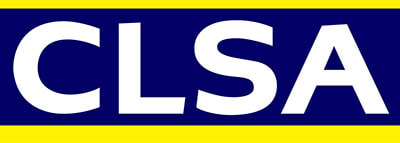|
The Culture Alignment program had begun. Starting with the C-suite, John who was the catalyst to introduce NLP into his organisation was identified as Head, Internal Champions Team. His role would be to pick talent from groups who showed promise, at every level. These were employees who took to NLP like a duck to water. Sylvia called them the naturals like “oysters a la natural.” John sat in the back of the room as an assistant to Sylvia the NLP consultant who was brought in to effect a culture change. Refreshing his memory of what he had been learnt a year ago, he felt elated at the associative memories that returned. The C-suite of 13 pax were hearing this for the first time but he was delving into the same content at a deeper level, identifying what he knew and observing topics that he needed to work through more. NLP was such a deep high performance model. It was to be integrated into one’s being. It was definitely not just theory.
Sylvia began by addressing one of the most important success beliefs; meaning of the communication is the response you get. What did that really mean? It wasn’t about what a person said rather what the recipient of that message understood. Saying something to a colleague, boss, friend, spouse or child, the onus was on you, not them, to clarify it. Communication was a two-way street that created a plethora of misunderstandings and discontent, which did not help any situation. People who learn NLP communication models were more directed in what they said. Observing the other person’s communicative style, they could then pick a similar style that matched. It was easy enough once John got into the rhythm of practising new models. He remembered early days when he would consciously remind himself to observe and respond accordingly. Today, he considered himself a veteran who had mastered this aspect of NLP. Communication had become a breeze with his circle of influence and when things went wrong, he knew what to improve. He also learnt how to step into the other person’s shoes, to consider how his message would sound to the person on the receiving end. More often than not it stopped him from spouting what he felt and tuned in to how best to respond with a better likelihood of achieving his outcome. After all this is what high performers did right? They were outcome driven, no matter what. The triggers and automatic responses were in the past which gave way to amazing and profound results, to say the least. His team members too showed an improvement in performance. This manifested in a more cohesive team willing to work together. He felt they had unconsciously picked up his way of dealing with conflict and altercation via a process of osmosis. Successful team dynamics after all was about the willingness to listen well then respond, rather than react which was the modus operandi in the past. This augured so well for the team when generating new ideas or solving problems. Productivity had heightened as disagreements were handled well and eventually fell on the wayside. John realised the entire team had escalated to a new level of communication having learnt from each other. What a magical thing to happen! He loved how the unconscious mind knew how to emulate what others did and sometimes not even realising this profound side of what was happening. Open and clear communication was after all the key to great group dynamics. It was evident the team was able to establish a common language. Members felt the team was being heard while their contributions were valued too. It made them want to work even more as they began to feel a sense of belonging. So many benefits from merely changing his way of communicating. He was eager to see how the C-suite who were just learning these tools were going to impact the organisation. It was early days yet. There was much to look forward to!
0 Comments
Your comment will be posted after it is approved.
Leave a Reply. |
SYLVIA FERNANDES
Sylvia is a qualified Neuro Linguistic Programming (NLP) Master Trainer. She started her business in Sydney and is now based in Singapore. Archives
December 2024
Categories |

 RSS Feed
RSS Feed









